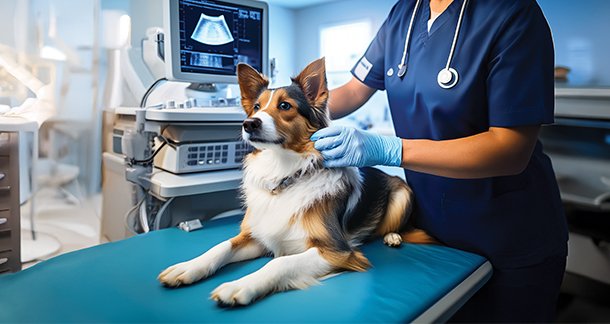The landscape of companion animal healthcare in India has undergone a remarkable transformation in recent years. With growing pet ownership, rising awareness among pet parents, and advancements in veterinary science, the demand for precise and timely diagnostic services has sharply increased. Diagnostics — once a peripheral component — is now emerging as the backbone of preventive and evidence-based veterinary medicine.
Beyond Companionship: Pets in a Changing World
In today’s world, pets are no longer just household companions. Dogs are playing critical roles in the Indian Armed Forces, police units, paramilitary forces, and the National Disaster Response Force (NDRF) — assisting in detection, surveillance, and search-and-rescue operations. Therapy and service animals are making strides in hospitals, rehabilitation centers, and schools, aiding in emotional and mental health support.
Such working animals require structured healthcare protocols, regular wellness monitoring, and prompt disease management — all of which rely on robust diagnostic support. Their well-being directly impacts national security, public service delivery, and emotional well-being of the communities they serve.
Diagnostics in the Indian Veterinary Context
Historically, veterinary practice in India leaned heavily on clinical observation. However, as pet lifestyles evolve and chronic, infectious, and lifestyle-related diseases rise, evidence-based diagnostics is becoming indispensable.
Modern diagnostics — spanning biochemistry, haematology, endocrinology, imaging, microbiology, serology, and molecular tools like PCR — are now being increasingly adopted in urban veterinary setups. These tests aid in early detection of critical illnesses like chronic kidney disease, liver disorders, vector-borne infections, Osteoarthritis, Hip dysplasia and cancer etc.
Still, several challenges remain:
- Limited diagnostic infrastructure in Tier 2 and Tier 3 cities
- Lack of standardization in sampling , testing and reporting
- Shortage of trained technicians and veterinary pathologists
- Leeser knowledge about specialised tests in young vets
- Low awareness about preventive diagnostics among pet parents
Zoonotic Diseases and the COVID-19 Wake-Up Call
The COVID-19 pandemic brought global attention to the risks of zoonotic diseases — those transmitted from animals to humans. While pets like dogs and cats were not major vectors, they became part of the global surveillance network during the pandemic.
This experience emphasized a key fact: animal health is deeply intertwined with human health. Diseases like leptospirosis, giardiasis, rabies, and tick-borne fevers are prevalent in India and pose significant public health concerns if undetected in animals.
Veterinary diagnostic labs are now positioned not just as service providers for pets, but as sentinels of zoonotic disease surveillance. Their role is pivotal in early detection, outbreak prevention, and monitoring antimicrobial resistance — aligning with the global One Health strategy.
What the Future Holds
India’s veterinary diagnostics ecosystem is evolving rapidly. Key trends shaping its future include:
- Specialized Diagnostic Labs: Facilities are expanding across India however they need to follow highest standards of testing may be going for NABL-accreditation.
- Preventive Wellness Panels: Like annual checkups in human medicine, regular diagnostic screenings for pets are gaining popularity.
- Point-of-Care Devices: Portable diagnostic tools are enabling real-time, in-clinic testing — improving treatment turnaround.
- Teleconsultation Integration: Linking diagnostics with telemedicine platforms is enhancing access to expert care, even in remote areas.
- AI and Digital Tools: Image-based cytology, automated haematology, and AI-assisted pathology are improving accuracy and workflow efficiency.

Redefining Treatment Protocols and Public Health Outcomes
The shift from symptom-based to data-driven treatment is changing the veterinary profession. Diagnostics allow for early detection, timely intervention, and customized therapies. They also help veterinarians avoid unnecessary medication use, especially antibiotics — contributing to the global fight against antimicrobial resistance.
In working animals, diagnostics support performance tracking and health optimization, ensuring they remain fit for service roles. In therapy animals, regular health screening ensures safety for both animals and the humans they serve.
Conclusion: A New Era in Companion Animal Healthcare
Veterinary diagnostics is no longer optional — it is a fundamental enabler of high-quality veterinary care. Whether it’s a beloved household pet or a service dog working in critical situations, their health depends on timely, accurate, and accessible diagnostics.
As India embraces a more scientific, integrated, and compassionate approach to veterinary medicine, diagnostics will be at its very core — protecting not just animal lives, but also contributing meaningfully to human health, community safety, and national well-being.
About the Author
Dr. Maneesh Kumar Gupta, founder of VETLAB, is a seasoned veterinarian with over 30 years in animal health. He pioneered India’s first NABL-accredited private veterinary diagnostic lab and champions preventive, tech-driven pet healthcare. VETLAB’s mission is to make advanced diagnostics accessible, empowering pet owners and vets alike.

